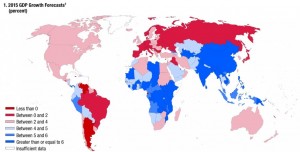Mental accounting is the set of psychological operations used by individuals and households to organise, evaluate, and keep track of financial transactions. It was established by Richard Thaler. According to mental accounting people assign different usage to money depending upon the source from which it was generated. It has enormous consequences in everyday life. It affects how people spend money and how they save. It influences how people fend with financial losses and windfall gains. It tells us what to do as we quantify different kinds of payment plans for a luxury item. The effects of mental accounting are felt in domains that seem far removed from the conventional understanding of economics. Mental accounting is really the household equivalent of financial accounting.
For example: Someone gives you money for your birthday and they don’t say, ‘pay your electric bill,’ but money is money and completely fungible, and if you are behind on your electric bill, you should definitely spend your money on that; even there is a reluctance to do that.
The effect of setting up accounts, however, has paradoxical effects — in exactly the same way that office accounting can create problems in a workplace. At the end of the financial year, the employer may not be willing to let the employee buy a new laptop, because the hardware budget is down to zero, but will allow him to take a trip to Los Angeles because there is money left in the travel budget. Employee’s argument that employee need a laptop more than the trip falls on deaf ears. Mental accounting also explains why, when people are given a choice to get a cash bonus or a gift such as a free vacation for doing well on the job, they invariably choose cash. As they want the flexibility of cash. Mental accounting, like financial accounting, requires people to close the books and balance their accounts.
However, compartmentalizing income and spending into different mental accounts violates one of the basic rules of economics — that money is fungible, or interchangeable. Whereas in mental accounting the source of finance affects how the money is spent.
Click here for government certification in Accounting, Banking & Finance





13 Comments. Leave new
A new thing. Nice
New information.. Well explained too.. Good job..
Interesting
Interesting concept, well written.
Good effort…Nice article
Nice article. Mental accounting is actually practiced in daily life and is quite essential too but hardly noticed.
New concept..Good work.!
interesting
Nice concept!
Nice article
very nice concept!!
Interesting!
Interesting! Great effort!